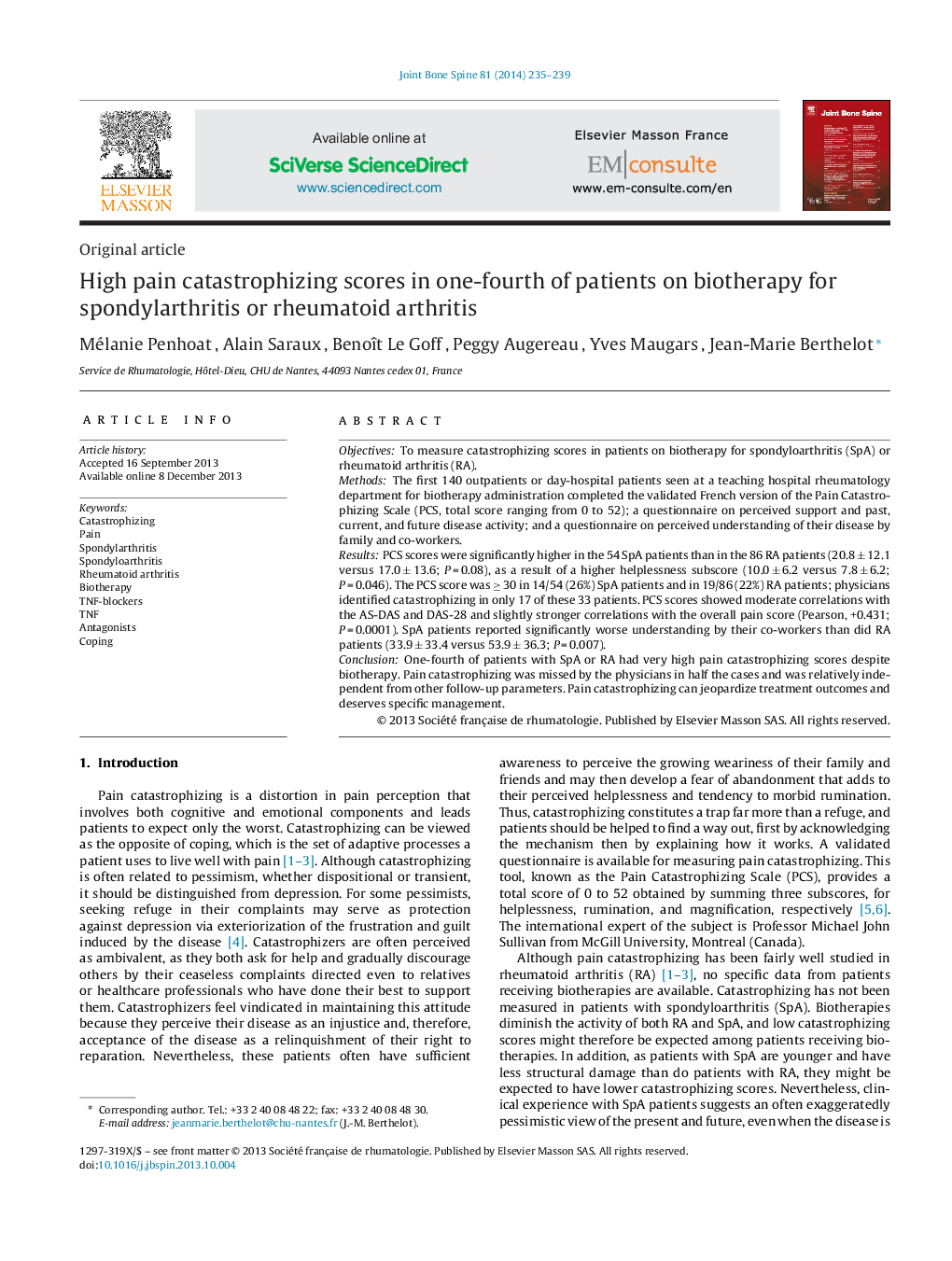| Article ID | Journal | Published Year | Pages | File Type |
|---|---|---|---|---|
| 3365790 | Joint Bone Spine | 2014 | 5 Pages |
ObjectivesTo measure catastrophizing scores in patients on biotherapy for spondyloarthritis (SpA) or rheumatoid arthritis (RA).MethodsThe first 140 outpatients or day-hospital patients seen at a teaching hospital rheumatology department for biotherapy administration completed the validated French version of the Pain Catastrophizing Scale (PCS, total score ranging from 0 to 52); a questionnaire on perceived support and past, current, and future disease activity; and a questionnaire on perceived understanding of their disease by family and co-workers.ResultsPCS scores were significantly higher in the 54 SpA patients than in the 86 RA patients (20.8 ± 12.1 versus 17.0 ± 13.6; P = 0.08), as a result of a higher helplessness subscore (10.0 ± 6.2 versus 7.8 ± 6.2; P = 0.046). The PCS score was ≥ 30 in 14/54 (26%) SpA patients and in 19/86 (22%) RA patients; physicians identified catastrophizing in only 17 of these 33 patients. PCS scores showed moderate correlations with the AS-DAS and DAS-28 and slightly stronger correlations with the overall pain score (Pearson, +0.431; P = 0.0001). SpA patients reported significantly worse understanding by their co-workers than did RA patients (33.9 ± 33.4 versus 53.9 ± 36.3; P = 0.007).ConclusionOne-fourth of patients with SpA or RA had very high pain catastrophizing scores despite biotherapy. Pain catastrophizing was missed by the physicians in half the cases and was relatively independent from other follow-up parameters. Pain catastrophizing can jeopardize treatment outcomes and deserves specific management.
